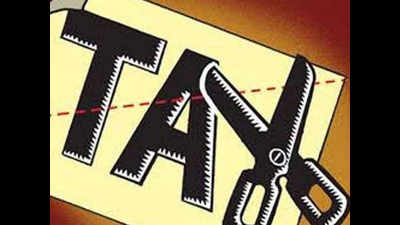- News
- City News
- ahmedabad News
- In Bhadra fort, edict on women’s rights erodes
Trending
This story is from January 17, 2017
In Bhadra fort, edict on women’s rights erodes
Locals living around Teen Darwaza were concerned by the precarious state of the 1812 AD Maratha plaque, proclaiming equal property rights for women. The Maratha-era plaque now lies in a dilapidated condition — the inscribed stone wearing off and one can now easily spot hairline cracks emerging with not many conservationists taking note.

Representative image
AHMEDABAD: Locals living around Teen Darwaza were concerned by the precarious state of the 1812 AD Maratha plaque, proclaiming equal property rights for women. The Maratha-era plaque now lies in a dilapidated condition — the inscribed stone wearing off and one can now easily spot hairline cracks emerging with not many conservationists taking note. Almost eight years ago, the then speaker of the Gujarat assembly, Ashok Bhatt and AMC mayor Amit Shah had requested the engineering department of the civic body to assist the ASI in helping preserve this ‘farman’.
The inscribed 'farman' by the Maratha subedar Chimnaji Raghunath of October 10, 1812 declares that that women should be given equal rights to property. The inscription on the plaque read, “Let the daughter get her due share of father's property without any hitch. So is Lord Vishwanath's command. If you defy, the Hindu must answer Mahadev and the Mussalman will have to explain to Allah Rasool.”
A local shop owner, Govind Parmar, told TOI, “We are a small group of traders who had recently spotted the damage and even informed the ASI office. But nothing has come through. A lot of encroachment around the monument is responsible for the sorry state of affairs.”
Raghunath had made this appeal to both Hindus and Muslims. Ahmedabad was then ruled by the Marathas from 1757 to 1818 after they defeated the Mughals. In 1780, Marathas used to tax sons to pay a certain tax to inherit ancestral property. Girls did not have to pay any tax.
The inscribed 'farman' by the Maratha subedar Chimnaji Raghunath of October 10, 1812 declares that that women should be given equal rights to property. The inscription on the plaque read, “Let the daughter get her due share of father's property without any hitch. So is Lord Vishwanath's command. If you defy, the Hindu must answer Mahadev and the Mussalman will have to explain to Allah Rasool.”
A local shop owner, Govind Parmar, told TOI, “We are a small group of traders who had recently spotted the damage and even informed the ASI office. But nothing has come through. A lot of encroachment around the monument is responsible for the sorry state of affairs.”
Raghunath had made this appeal to both Hindus and Muslims. Ahmedabad was then ruled by the Marathas from 1757 to 1818 after they defeated the Mughals. In 1780, Marathas used to tax sons to pay a certain tax to inherit ancestral property. Girls did not have to pay any tax.
End of Article
FOLLOW US ON SOCIAL MEDIA










